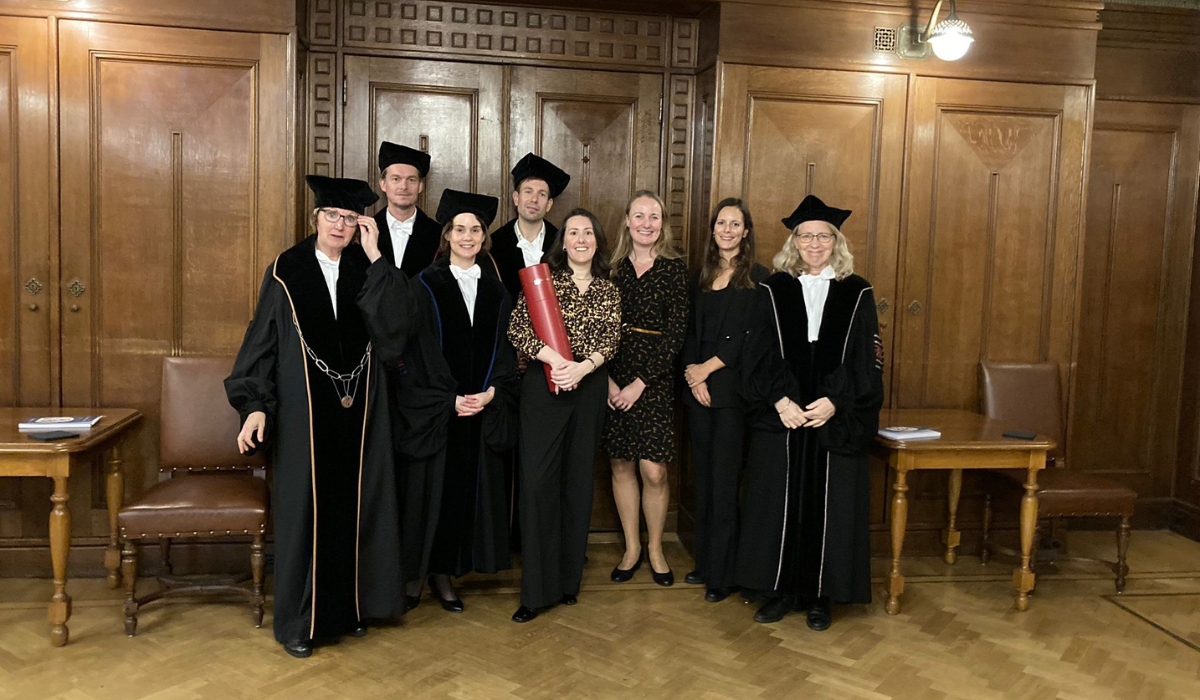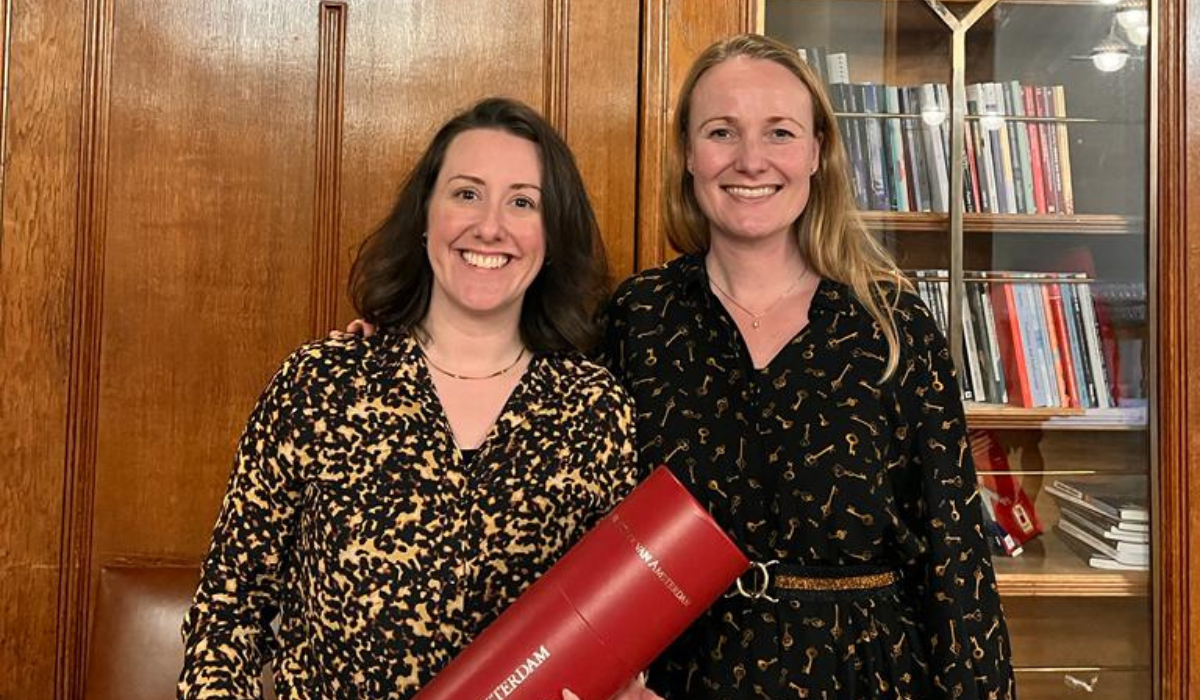Lucy Alumna turned a personal challenge into groundbreaking epigenetics research.
Dr Nicole Creasey, is a postdoctoral researcher in the department of child psychiatry and psychology at the Erasmus University Medical Center, the Netherlands. She joined Lucy Cavendish college in October 2014 as a bachelor student in the Psychological and Behavioral Sciences tripos, which she graduated from in 2017.
Nicole’s academic journey was shaped by her personal experience with epilepsy, sparking a profound interest in understanding the complex interplay between our genes, environment, and mental wellbeing. Her research focuses on developmental psychology and epigenetics. Let's dive into her story.
Nicole's path to academia started at Lucy Cavendish College. After completing her bachelor's degree in Psychological and Behavioral Sciences, she embarked on a journey to understand how our environment, particularly early relationships, can shape our genetic expression and ultimately influence our mental health.
"My own experience with epilepsy made me realise the deep connection between our brains, emotions, and overall wellbeing," Nicole explains. "I wanted to investigate how our experiences can leave biological traces that affect our mental health trajectories."

For Nicole, one of the biggest challenges of living with epilepsy lies beyond the seizures themselves. “People often think of epilepsy as a condition where you have convulsions on the ground, but actually I have the most common type of epilepsy where I lose awareness sometimes during a seizure but don’t lose consciousness or control of my muscles. It’s called temporal lobe epilepsy because of where the seizures happen in my brain. The hardest thing about epilepsy for me is not the seizures but the cognitive and psychiatric problems. I have difficulty concentrating and memory problems – this can make studying and sitting exams a real challenge, but can also make it harder to interact with other people and look after myself day-to-day.” she shares. Yet these challenges have fueled her determination. Her successful PhD defence in Amsterdam stands as a testament to her perseverance and the power of pursuing her passion.
Nicole is a firm believer in making her research accessible to the general public. She explains epigenetics—the study of how our environment can change the way our genes work—in simple terms.
"Our parents influence our epigenetics," she says. "This knowledge highlights our societal responsibility to ensure parents have the resources they need to provide nurturing environments for our children."
Nicole's message to students facing challenges is clear: "Don't be afraid to ask for what you need. Reasonable adjustments are about levelling the playing field, not gaining an unfair advantage. Work with your tutors and the disability centre to identify ways to make your academic journey smoother."
The welcoming atmosphere of Lucy Cavendish drew Nicole to the college as a mature student. She felt immediately at home in a community where every individual's story is valued. The supportive attitude she found at Lucy fostered her academic success and continues to inspire her: “Lucy Cavendish remains the academic institution that I feel is my ‘home’. I always felt supported by my tutor and director of studies, who were encouraging of my journey in academia and never once put limits on what I could achieve with my disability. The library staff were also incredibly helpful – reserving a desk in a quiet area for me to use that would create predictably and minimise distractions. What was most important overall was the attitude – I feel that Lucy Cavendish is proud of its students not in spite of their individual differences but because of them.”




